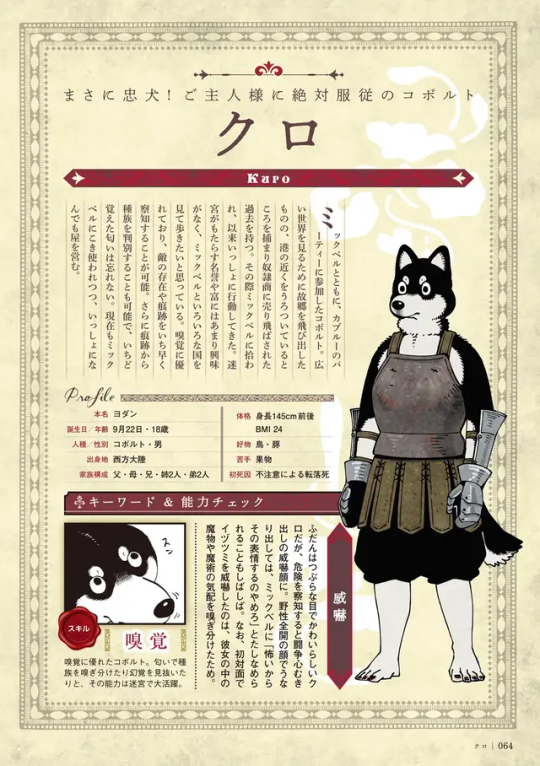#just mark your content as an AU (alternate universe) and you're all set baby!!!
Explore tagged Tumblr posts
Text
PSA: Mickbell and Kuro do NOT run a noodle shop in the post-canon. They run a general store.
So, there's a popular misconception that in the post-canon, Mickbell and Kuro, two minor characters from Kabru's party, open a noodle shop. My friend Fumi drew my attention to this last night, as I'd just sort of forgotten about it.
This is not actually true. What their bios in the updated World Guide say is that they run a general store together, with no mention of noodles whatsoever. I checked this using machine translation, and got a Japanese speaker to confirm that it was correct.
With that in mind, I'm also pretty sure Mithrun's updated World Guide bio also doesn't mention anything about him being an ambassador or making noodles or running a shop. I'll make another post about that once I've confirmed it to my satisfaction.
Images and translation info behind the cut.


The last sentence of Mickbell's bio says: 現在はクロとともに、な んでも屋を営んでいる。
This translates to: He currently runs a general store together with Kuro.
The last sentence of Kuro's bio says: 現在もミックベルにこき使われつつ、いっしょにな んでも屋を営む。
This translates to: He is still exploited by Mickbell, and the two run a general store together.
Both of these sentences use the characters なんでも屋, which means anything/variety/general store.
A general store is a rural or small-town store (sometimes called a general merchandise store, general dealer, village shop, or country store) that carries a general line of merchandise. It carries a broad selection of merchandise, sometimes in a small space, where people from the town and surrounding rural areas come to purchase all their general goods.
It differs from a convenience store or corner shop in that it will be the main shop for the community rather than a convenient supplement.
In English, this implies that their shop isn't in the heart of the city, though being rural may not be the most important defining factor that makes a "general store" in contemporary Japanese speech, where very few places are truly remote and rural.
#dungeon meshi#delicious in dungeon#dunmeshi#mikbell tomas#mickbell tomas#kuro dungeon meshi#mickbell#mikbell#spoilers#psa#correcting fandom misinformation#if you want them to run a noodle shop in your fanfic that's totally cool and you should have fun with it! But just know it's not canon.#Things not being canon is fine!#Knowing the canon status of facts is only good so that fans can agree on what did or didn't happen in the series.#It gives us a fair starting point.#just mark your content as an AU (alternate universe) and you're all set baby!!!
85 notes
·
View notes